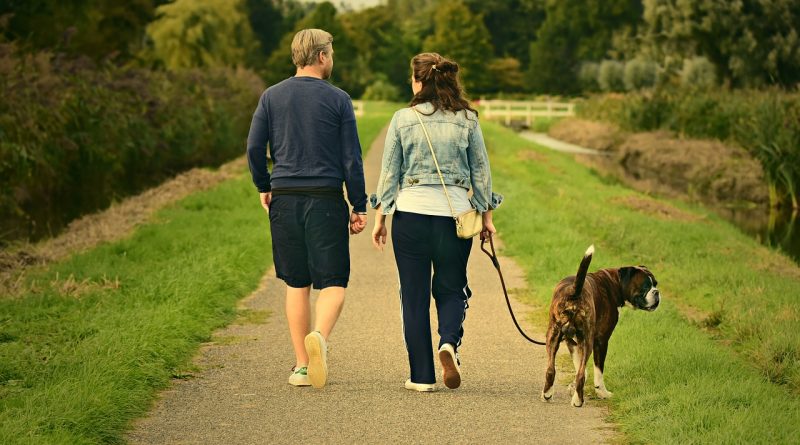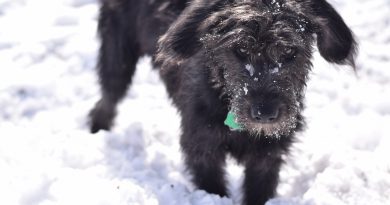How Much Exercise Does Your Dog Really Need?

Every dog needs exercise each day but the amount can vary greatly from dog to dog, based on breed, age, and overall health. Just like us humans, every dog has different needs. Some dogs are young and full of energy, while other dogs may be frail breeds, overweight, seniors, or suffering an injury or disease. Although there is no “one size fits all” when it comes to each dog’s exercise needs, it’s pretty easy to figure out how much exercise your dog really needs.
Start by carefully considering your dog’s starting point. Health and breed are also important and factored into your decision. Above all else, your dog should be your guide. It should be pretty easy to tell when your dog is tired and ready to take a break. And, if your dog is older or has a health condition, consult with your vet first before beginning any exercise plan.
Considering Your Dog’s Age
Puppies are usually a tightly wound bundle of energy. They like to tear around the house and yard like little tornadoes. A puppy’s eagerness for play and learning is huge, but it comes in sudden bursts rather than a steady stream. Their bodies are developing and growing fast, their need for bonding and learning are huge, and their curiosity about you and their surroundings is intense.
That means you must know about and take positive action on your puppy’s exercise and developmental needs. This goes well beyond feeding and house training. It means getting out with your pup each day for a fun walk or vigorous run. It means giving your pup the attention and training it craves and needs each day. A half-hour of good exercise every morning and night is a good rule-of-thumb for most healthy pups. With fundamental training, a proper diet, and plenty of rest this exercise will strengthen your pup both physically and mentally. It will help your pup soundly and mature into adulthood. And, it will lay the groundwork for a permanent bonding between the two of you.
Adult dogs need regular, daily exercise too. Without it, they will become overweight and bored. More often than not, a bored dog will become a problem dog. That is, bored dogs tend to snarl, fight, bite, and bark excessively. They may even become so bad-tempered as to become destructive to property and combative with other pets. As a dog parent, you don’t want that disastrous outcome. By exercising and socializing your adult dog each day you’ll have a happy and healthy best friend for life.
Senior dogs are very special and usually much loved by their human companions. Sometimes the infirmities of old age, such as disease or frailty, will prohibit any kind of stressful exercise. However, most senior dogs will enjoy and benefit from the attention you give them. Just be mindful of their weight, body condition, and diet. Any sort of leisurely walk is perfect for a healthy senior dog. For a frail or infirm senior dog, gentle grooming, some loving pets, or a little quiet playtime is perfectly acceptable. And, it will be much appreciated by your elderly best friend.
In Conclusion
Properly training, socializing, and reinforcing your young dog is key to the dog behaving and interacting in positive ways as it matures. Remember that all dogs, especially puppies, need a lot of rest so keep the exercise sessions short but effective. As a dog parent, you should want to nourish your dog’s daily appetite for fun and challenging exercise. If you do this every day, then you’ll have a well-developed best friend for life.













